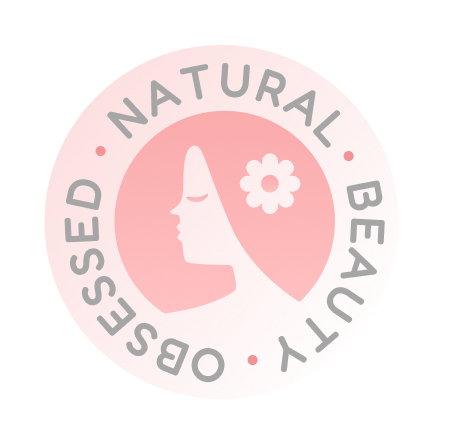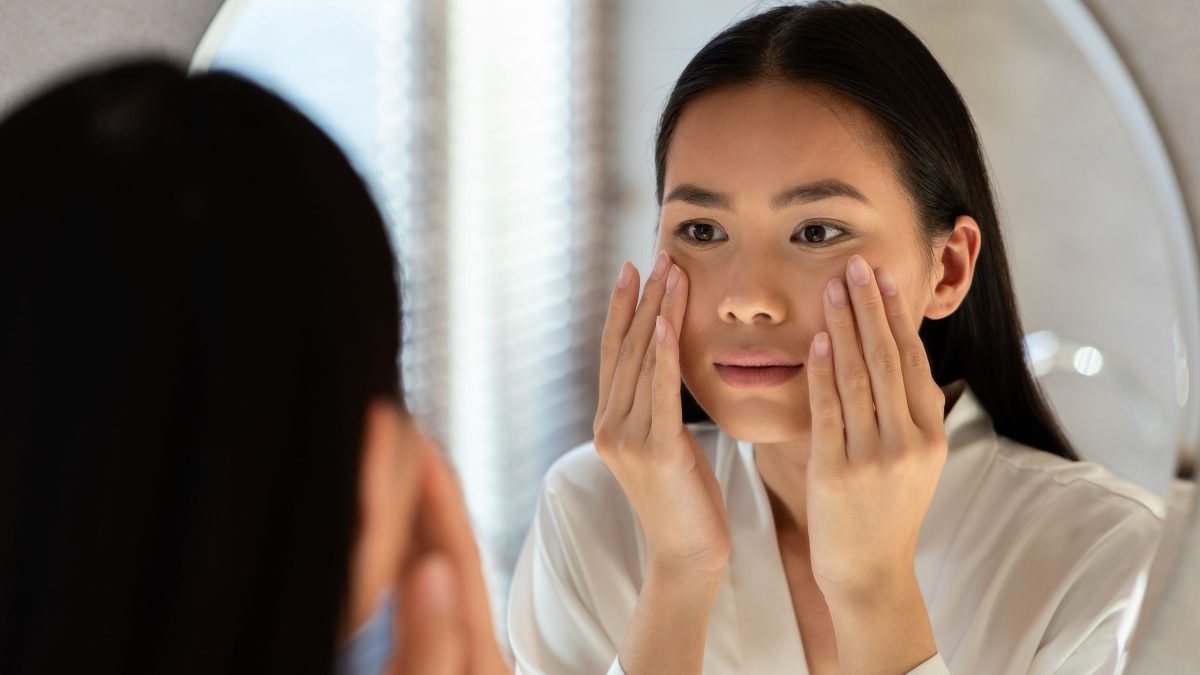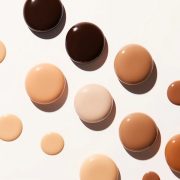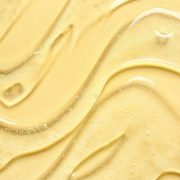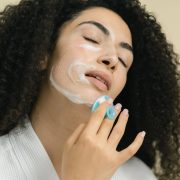Unlock the Secret to Balanced, Radiant Skin: Mastering Oily Skin Care
Posted on September 29, 2024 Written by: 100% PURE®

If you have oily skin, you’re no stranger to the constant battle against shine and frequent breakouts. It’s a cycle that can feel never-ending: one moment your skin feels slick and greasy, and the next you’re dealing with clogged pores and blemishes. You’ve likely tried countless products, only to find that many either leave your skin feeling overly dry or don’t deliver the results you hoped for.
Finding the right routine can feel overwhelming, but there’s good news: with the right steps and products, you can finally achieve the balance your skin needs. By following a tailored skincare routine, you can calm excessive oil production, reduce breakouts, and enjoy a complexion that’s clearer and healthier. Imagine waking up to skin that feels refreshed and balanced, without the shine or struggle.
In this guide, we’ll walk you through the key steps of an effective oily skin routine—one designed to give you the lasting, clear results you’ve been searching for.
Understanding Oily Skin
Dealing with oily skin can feel frustrating, but understanding what’s happening beneath the surface is the first step toward clearer, healthier skin. Oily skin is typically caused by a combination of hormonal factors, genetics, and environmental influences. For many, it’s simply in their DNA, passed down from family members. Hormonal changes—whether due to puberty, pregnancy, or stress—can trigger an increase in oil production. Lifestyle factors like diet, humidity, and even your skincare choices can also play a significant role in how much oil your skin produces.
At the heart of oily skin lies the skin’s oil glands, known as sebaceous glands, which produce sebum. Sebum is the natural oil your skin needs to stay hydrated and protected. While it’s essential for maintaining your skin’s health, too much sebum can clog pores, leading to breakouts and shine. The key to managing oily skin isn’t eliminating sebum altogether but finding a balance that allows your skin to function properly without being overwhelmed by excess oil.
By understanding how your skin’s oil glands work and what triggers them to overproduce, you can take control of your skincare routine and start making choices that lead to a more balanced, glowing complexion.
Building Your Oily Skin Routine
Creating an effective skincare routine for oily skin doesn’t have to be complicated. The right steps can help you take control of excess oil, minimize breakouts, and leave your skin looking fresh and balanced throughout the day. Here’s a step-by-step guide to building your perfect routine.
Morning Routine Essentials
1. Gentle, Non-Stripping Cleanser
The first step in your morning routine is a gentle, non-stripping cleanser. It’s tempting to reach for harsh, oil-zapping products, but they often make things worse by causing your skin to produce even more oil. Instead, look for a cleanser that removes dirt and excess oil without leaving your skin feeling tight or dry.
2. Oil-Free, Mattifying Moisturizer
Many people with oily skin skip moisturizer, thinking it will make their skin shinier, but hydration is key to balance. An oil-free, mattifying moisturizer provides essential hydration while helping to control oil production throughout the day, giving your skin a fresh, shine-free appearance.
3. Lightweight, Non-Comedogenic Sunscreen
Sunscreen is a must, even if you have oily skin. Opt for a lightweight, non-comedogenic formula that won’t clog pores or add excess shine. Look for sunscreens that provide broad-spectrum protection and absorb quickly, leaving your skin feeling smooth and matte.
Evening Routine Must-Haves
1. Double Cleansing for Thorough Oil Removal
At the end of the day, your skin needs a thorough cleanse to remove oil, dirt, and makeup. Double cleansing involves using an oil-based cleanser first to break down impurities, followed by a water-based cleanser to finish the job. This ensures that your skin is deeply cleaned without stripping it of essential moisture.
2. Balancing Toners and Essences
After cleansing, a balancing toner or essence can help refine your pores and restore your skin’s pH levels. Choose toners with ingredients like witch hazel or salicylic acid to control oil and prevent breakouts, while hydrating essences help maintain balance.
3. Treatment Serums for Specific Concerns
To target oily skin issues like breakouts or uneven texture, add a treatment serum to your nighttime routine. Serums containing ingredients like niacinamide or salicylic acid can help reduce oil production, calm inflammation, and prevent blemishes, giving your skin the focused care it needs.
Common Oily Skin Misconceptions
If you have oily skin, it’s easy to fall into habits that seem helpful but might actually make things worse. Let’s clear up some common misconceptions that could be standing in the way of the balanced, clear skin you’re aiming for.
The Urge to Over-Cleanse and Strip the Skin
One of the biggest mistakes people with oily skin make is over-cleansing. It’s tempting to think that the more you wash, the less oily your skin will be. But the truth is, when you strip your skin of its natural oils by cleansing too often or using harsh products, your skin actually produces even more oil to compensate. Instead, stick to a gentle cleanser twice a day, which will help remove excess oil without triggering your skin to go into oil-production overdrive.
Fear of Using Moisturizers and Oils
Many with oily skin avoid moisturizers or anything with “oil” in it, thinking these products will make their skin greasier. In reality, when your skin is dehydrated, it tries to protect itself by producing even more oil. Using a lightweight, oil-free moisturizer keeps your skin hydrated, which helps balance oil production. And don’t be afraid of facial oils either—certain oils like jojoba or squalane can actually help regulate your skin’s natural oil levels without clogging pores.
Confusion About Exfoliation Frequency
Exfoliating can feel like a great way to scrub away excess oil and unclog pores, but it’s important to avoid over-exfoliating. Doing so can irritate the skin and cause inflammation, which can lead to more breakouts. Aim to exfoliate no more than 2-3 times per week using gentle, chemical exfoliants like salicylic or glycolic acid. These will help clear out dead skin cells and excess oil without damaging your skin’s protective barrier.
Navigating the Oily Skin Product Market
If you have oily skin, you’ve likely encountered the overwhelming array of “oil-control” products lining store shelves. Each promises to eliminate shine and banish breakouts, but choosing the right ones can feel like a guessing game. With so many options, it’s easy to fall into the trap of using products that promise quick fixes but actually worsen your skin issues.
Harsh Ingredients That Can Exacerbate Oiliness
Many oil-control products are packed with harsh ingredients designed to strip away oil, but these can backfire. Ingredients like alcohol, sulfates, and strong astringents may temporarily reduce shine, but they can leave your skin feeling tight and dry. This signals your skin to produce even more oil to compensate, leading to a vicious cycle of excess oil and irritation.
The Challenge of Finding Effective, Gentle Solutions
The key to successfully managing oily skin is finding products that are both effective and gentle. Look for ingredients like salicylic acid or niacinamide that target oil production without stripping your skin. Hydrating ingredients such as hyaluronic acid can also keep your skin balanced, preventing it from overcompensating with excess oil.
By choosing products that work with your skin rather than against it, you can finally achieve a balanced, clear complexion—without the frustration of navigating through endless options that overpromise and underdeliver.
The Oily Skin Solution: Key Ingredients and Techniques
Managing oily skin doesn’t have to be a constant struggle. With the right ingredients and techniques, you can take control of excess oil, minimize breakouts, and maintain a balanced complexion. Here are some key ingredients and methods to help you do just that.
Beneficial Ingredients for Oily Skin
1. Salicylic Acid for Deep Pore Cleansing
Salicylic acid is a game-changer for oily skin. This beta-hydroxy acid (BHA) penetrates deep into your pores, breaking down excess oil and dissolving the buildup that can lead to blackheads and breakouts. Using a cleanser or serum with salicylic acid can help keep your pores clear without over-drying your skin.
2. Niacinamide for Sebum Regulation
Niacinamide (vitamin B3) is a powerful ingredient that helps regulate oil production. By reducing excess sebum, niacinamide prevents clogged pores and leaves your skin looking smoother and less shiny. It also has anti-inflammatory properties, making it a great choice for calming irritated, breakout-prone skin.
3. Hyaluronic Acid for Oil-Free Hydration
Even oily skin needs hydration, and hyaluronic acid is the perfect solution. This lightweight, water-attracting ingredient provides deep moisture without clogging your pores or adding extra oil. It keeps your skin balanced and hydrated, which can actually reduce oil production in the long run.
Exfoliation Strategies
1. Chemical vs. Physical Exfoliants
Exfoliation is crucial for oily skin, but the method matters. Chemical exfoliants like salicylic acid and glycolic acid gently dissolve dead skin cells, preventing clogged pores and promoting cell turnover without harsh scrubbing. Physical exfoliants, on the other hand, can be too abrasive for oily, acne-prone skin and may lead to irritation. Stick with chemical exfoliants for a smoother, clearer complexion.
2. Frequency and Method for Oily Skin Types
While exfoliation is important, overdoing it can irritate your skin and lead to more oil production. Aim to exfoliate 2-3 times per week, using a gentle chemical exfoliant. This will keep your skin clear and glowing without disrupting its natural balance.
Targeted Treatments
1. Spot Treatments for Breakouts
For those inevitable breakouts, a targeted spot treatment can work wonders. Ingredients like benzoyl peroxide and sulfur help reduce inflammation and kill acne-causing bacteria, speeding up the healing process. Apply these treatments only to affected areas to avoid over-drying the rest of your skin.
2. Clay Masks for Oil Absorption
Incorporating a clay mask into your routine once or twice a week can help control excess oil and keep your pores clear. Clay, especially bentonite or kaolin, absorbs oil without stripping the skin, leaving you with a smooth, matte finish. These masks are also great for drawing out impurities and preventing future breakouts.
By using these key ingredients and techniques, you can build a skincare routine that not only controls oil but also nourishes and protects your skin. The result? A balanced, clear, and confident complexion.
100% PURE Products for Oily Skin
If you’re dealing with oily skin, finding the right products can make all the difference. 100% PURE offers a range of natural, effective solutions designed specifically to control excess oil, prevent breakouts, and maintain balanced skin. Here are some standout products to incorporate into your skincare routine.
Tea Tree & Willow Clarifying Cleanser
Start your routine with our , a purifying face wash that targets excess oil without leaving your skin feeling dry or tight. Infused with tea tree and willow bark, this cleanser helps control oil production and clear up breakouts by deeply cleansing pores. It’s gentle enough for daily use but tough on the impurities that can lead to acne.
Hydra Drench Cream
Oily skin still needs moisture, and the provides exactly that. This lightweight, oil-free moisturizer delivers hydration without clogging pores or adding extra shine. Made with hyaluronic acid and chia seed water, it absorbs quickly into the skin, keeping your complexion hydrated and balanced throughout the day.
Yerba Mate Mist SPF 30
Sun protection is essential, but many sunscreens can feel greasy or clog pores. Our is different. This non-greasy sunscreen offers broad-spectrum protection while keeping oily skin in check. It’s lightweight and won’t contribute to shine, making it perfect for daily wear without weighing your skin down.
Green Tea EGCG Concentrate Cream
For a calming, antioxidant boost, the is an ideal option. Rich in green tea and EGCG, this moisturizer soothes irritated skin, reduces redness, and balances oil production. It’s particularly effective for oily, acne-prone skin, providing nourishment without making your skin feel oily or congested.
Charcoal Clay Cleanser
To deep-clean your skin and absorb excess oil, the is a must-have. This treatment cleanser uses activated charcoal and kaolin clay to detoxify pores, remove impurities, and refine skin texture. It’s an excellent addition to your routine for those days when your skin needs an extra deep clean, leaving your face feeling refreshed and oil-free.
By incorporating these 100% PURE products into your skincare routine, you can effectively manage oily skin, minimize breakouts, and achieve a clear, balanced complexion without compromising on hydration or protection.
Conclusion: Your Path to Balanced, Radiant Skin
Managing oily skin doesn’t have to feel like a constant battle. By focusing on the right strategies, you can take control of your skin and achieve a healthy, balanced complexion. Recap these key points:
- Choose the right ingredients like salicylic acid and niacinamide to target excess oil and breakouts.
- Hydrate without overloading your skin by using lightweight, oil-free moisturizers.
- Exfoliate and cleanse mindfully to avoid over-stripping your skin and triggering more oil production.
- Incorporate sun protection that won’t clog pores or cause shine.
Consistency is key. Achieving balanced, clear skin won’t happen overnight, but with a dedicated routine, you’ll start seeing progress. Be patient, stay the course, and trust that with time, your skin will respond to the care it needs.
Now’s the time to take action! Start building your personalized oily skin care regimen today, and enjoy the journey toward a radiant, balanced complexion.
Frequently Asked Questions
1. How often should I wash my face if I have oily skin?
For oily skin, it’s best to wash your face twice a day—once in the morning and once before bed. Over-washing can strip your skin of essential oils, which may cause it to produce even more oil. Use a gentle, non-stripping cleanser to keep your skin balanced and fresh.
2. Can using facial oils actually help balance oily skin?
Yes! It may seem counterintuitive, but using the right facial oils can help regulate your skin’s oil production. Oils like jojoba or squalane mimic your skin’s natural sebum, signaling to your skin that it doesn’t need to produce as much oil. This can lead to a more balanced complexion over time.
3. What’s the best way to apply makeup for long-lasting wear on oily skin?
Start with a mattifying primer to create a smooth base and control oil. Use an oil-free, long-wear foundation and set it with a translucent powder. Throughout the day, blotting papers or a lightweight setting spray can help manage shine without disturbing your makeup.
4. Are there any dietary changes that can help reduce skin oiliness?
Yes, some dietary changes may help. Foods rich in omega-3 fatty acids, such as salmon, flaxseeds, and walnuts, can help regulate oil production. Reducing your intake of high-glycemic foods (like white bread and sugary snacks) may also prevent excess oiliness and breakouts.
5. How can I manage oily skin during hot, humid weather?
In hot, humid conditions, your skin may produce more oil. Stick to lightweight, non-comedogenic products that won’t clog your pores. A mattifying toner or oil-control serum can help keep excess shine at bay, and don’t forget to use blotting papers throughout the day to remove oil without disrupting your skincare or makeup.
